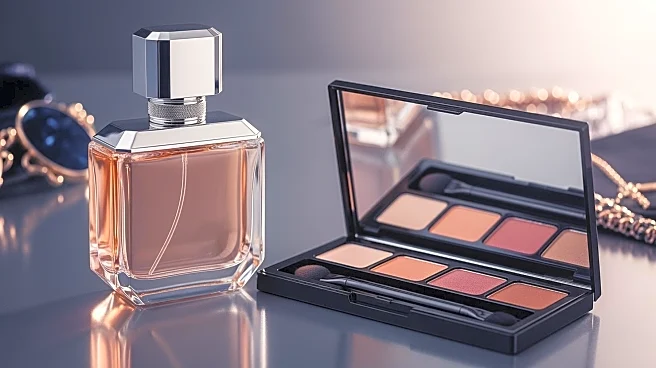What's Happening?
Kering has announced the sale of its entire beauty unit to L'Oréal for $4.6 billion. This transaction includes the license to produce Gucci-branded beauty products once Kering's current agreement with Coty expires in 2028. The deal also involves a joint
venture to explore opportunities in beauty and wellness. Kering's decision marks a strategic retreat from its previous ambition to manage beauty in-house, a move initially aimed at maximizing revenues and controlling brand image across categories. The sale is part of a broader strategy to address Kering's €9.5 billion debt and refocus on its core fashion and leather goods business.
Why It's Important?
The sale of Kering's beauty unit to L'Oréal is significant for both companies and the broader fashion and beauty industries. For L'Oréal, acquiring Kering's brands with long-term licensing agreements strengthens its position as the world's largest beauty conglomerate. This move could enhance L'Oréal's market presence and product offerings. For Kering, the deal helps alleviate its substantial debt, allowing the company to concentrate on reviving its core fashion business. The transaction also impacts Coty, which stands to lose a significant revenue source with the eventual loss of Gucci's beauty business.
What's Next?
L'Oréal's acquisition of Kering's beauty unit may lead to further strategic partnerships, including a potential alliance with Armani. L'Oréal's CEO has indicated that the acquisition will not hinder a possible tie-up with Armani, which could involve licensing agreements similar to those with Kering. Additionally, Coty may face challenges in maintaining its luxury positioning and could see other brands like Burberry and Chloe reconsider their partnerships. The industry will be watching how these developments unfold and impact market dynamics.
Beyond the Headlines
The deal between Kering and L'Oréal could trigger long-term shifts in the luxury and beauty sectors. It highlights the growing trend of strategic partnerships and consolidations within the industry, as companies seek to optimize their portfolios and address financial challenges. The transaction may also influence consumer perceptions and brand loyalty, as well as competitive strategies among major players in the beauty market.














